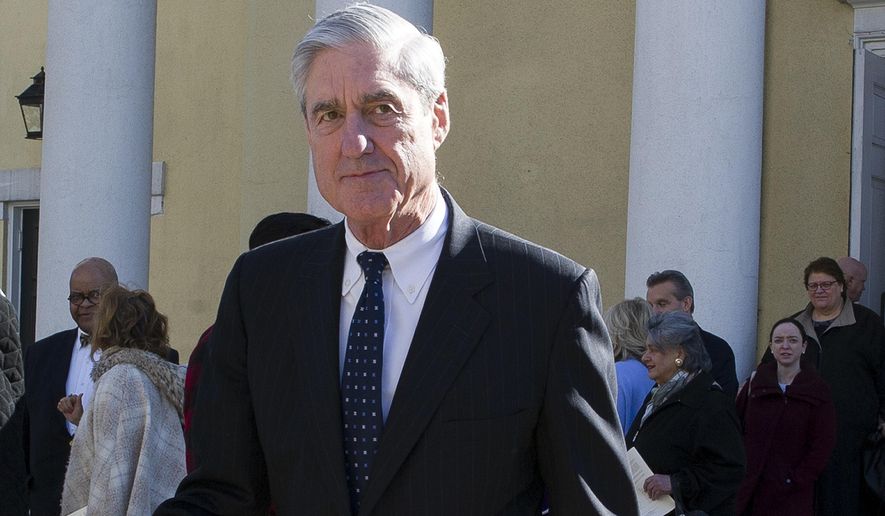During a cooperation agreement, special counsel Robert Mueller didn’t ask Paul Manafort about allegations he had visited WikiLeaks founder Julian Assange in London in 2016, according to a source familiar with the case.
“It shows how much they thought of it,” the source said.
The Guardian newspaper reported in November that Manafort visited the Ecuadorian Embassy in London three times, where Mr. Assange sought asylum in 2014. Both Manafort and WikiLeaks vehemently denied the story, which has not been bolstered by other news outlets.
It was another Trump-Russia “bombshell, if true” story. The Guardian allegation created new suspicion about election-year collusion, since it was WikiLeaks that publicly released thousands of Democratic Party emails and documents stolen by Russian operatives.
The source said the lack of questioning showed that Mr. Mueller didn’t take the charge seriously during his team’s hours of debriefing Manafort under a plea agreement.
A Mueller spokesman declined to comment.
Mr. Mueller ended his Russian probe on March 22, concluding there was no election conspiracy between the Kremlin and President Trump or his campaign.
After the Guardian report, The Washington Times reviewed Manafort’s three passports in use during 2016. None showed entry into Great Britain.
Mr. Assange threatened the Guardian with a libel lawsuit.
WikiLeaks’ Twitter statement said: “Remember this day when the Guardian permitted a serial fabricator to totally destroy the paper’s reputation. @WikiLeaks is willing to bet the Guardian a million dollars and its editor’s head that Manafort never met Assange.”
The “fabricator” reference was to an Ecuadorian intelligence source.
From his Virginia jail cell, Manafort issued a denial: “This story is totally false and deliberately libelous. I have never met Julian Assange or anyone connected to him. I have never been contacted by anyone connected to WikiLeaks, either directly or indirectly. I have never reached out to Assange or WikiLeaks on any matter. We are considering all legal options against the Guardian who proceeded with this story even after being notified by my representatives that it was false.”
The Guardian story was by Luke Harding, an advocate of a Trump-Russian conspiracy and promoter of Christopher Steele, the ex-British intelligence officer who wrote the anti-Trump dossier for the Hillary Clinton campaign and the Democratic National Committee.
None of Mr. Steele’s core collusion charges has been proven publicly.
As a political consultant, Manafort was a frequent flyer. One of his business clients was the government of Ecuador, where he visited in 2017.
Manafort was convicted by Virginia jury of tax and bank fraud. In Washington, D.C., he pleaded guilty to conspiracy against the United Starts and agreed to forfeit more than $40 million. The conspiracy involved money laundering, tax fraud and a lobbying violation.
Subsequently, Mr. Mueller accused Manafort of lying during the cooperation phase, but the issues didn’t involve alleged visits to London.
Two judges sentenced him to a total of 7½ years in prison.
• Rowan Scarborough can be reached at rscarborough@washingtontimes.com.




Please read our comment policy before commenting.